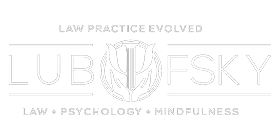Much of suffering can be tied to some deeply conditioned notion that we have some fundamental baseline of “happiness.” When some event, stimuli, or phenomenon is interpreted as “bad,” “unpleasant,” or “painful,” we almost instinctively engage strategies to obtain something we interpret as “good,” “pleasant,” or “pleasurable,” to return our condition to this baseline.
Such an orientation toward experience gives rise to endless efforts towards “evening the score” or attempts to stockpile “positive” experiences in an unconscious and misguided attempt to insulate ourselves from feared “negative” experiences.
Obviously it makes evolutionary sense that we would be wired to seek out pleasurable experiences and invoke motivation to avoid dangerous and unpleasant outcomes. This basic instinctual motivation becomes problematic, however, when we come to view almost all life stimuli through a pleasant/unpleasant, good/bad lens. We come to move through life with a mental adding machine. When an event is interpreted as “loss,” we may immediately seek to change our experience or outcomes to even the score and again return us to baseline happiness.
Mindfulness practice can help us more clearly identify this scorekeeping tendency, and heighten our ability to meaningfully connect to present-moment experience apart from our cerebral judgements about this experience. When events and stimuli are simply experienced without this layer of judgement, they are never problematic. They may feel unpleasant, but this feeling quickly dissipates. There is no problem, and our lives our not further complicated and made more unpleasant as the result of misguided efforts to even the score.
Legal conflict almost always involves deployment of the adding machine of one or more parties. Because of this, conflict may present an optimal opportunity to become more acutely aware of our tendency to keep score. Mindfulness practice in the midst of conflict can help parties let go of their adding machine and connect with their present-moment experience. In so doing, they become far more aware of their conditioned tendencies to approach life through an interpretive lens that may be leading to experiential difficulties.
Holistic law practice actively integrates mindfulness to help clients seize the transformational opportunities inherent in conflict. To learn more about holistic law practice, visit http://www.Holistic-Lawyer.com, or call Holistic Lawyer Michael Lubofsky at (415) 508-6263.
